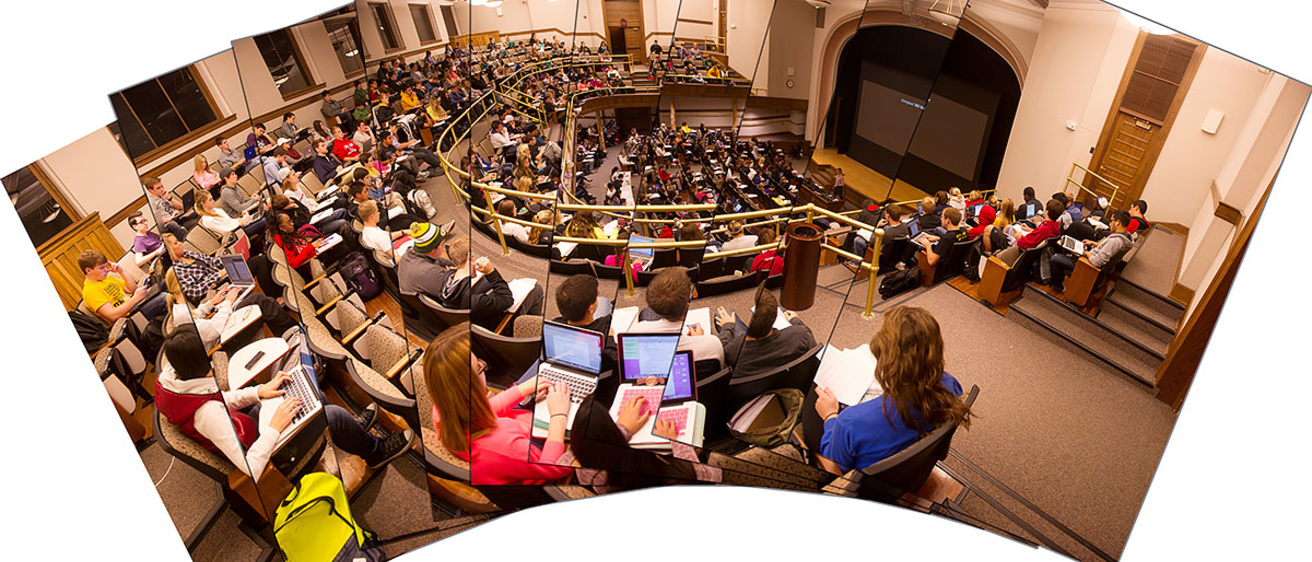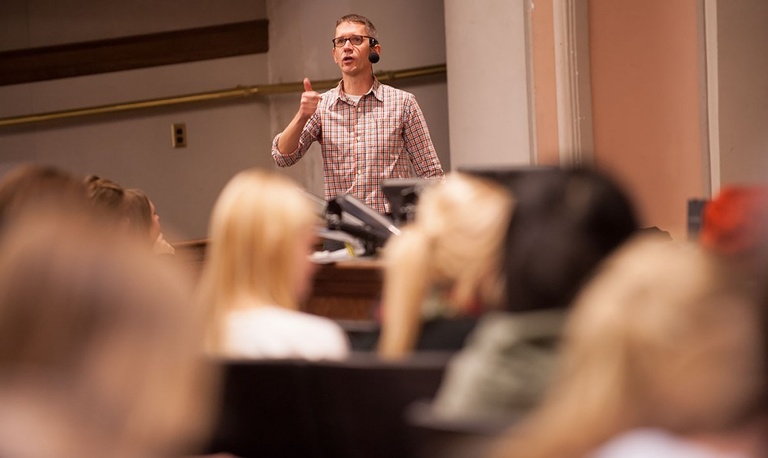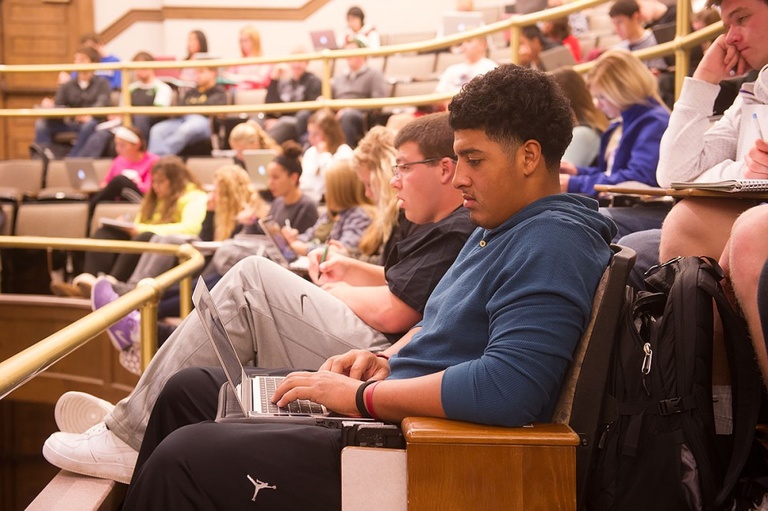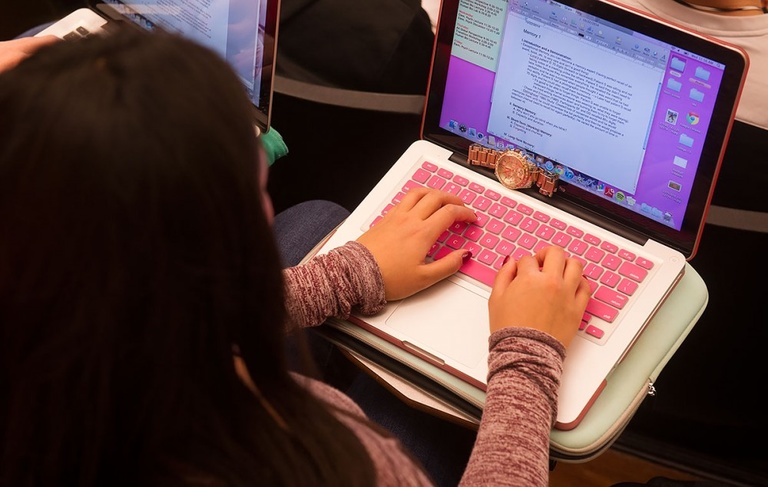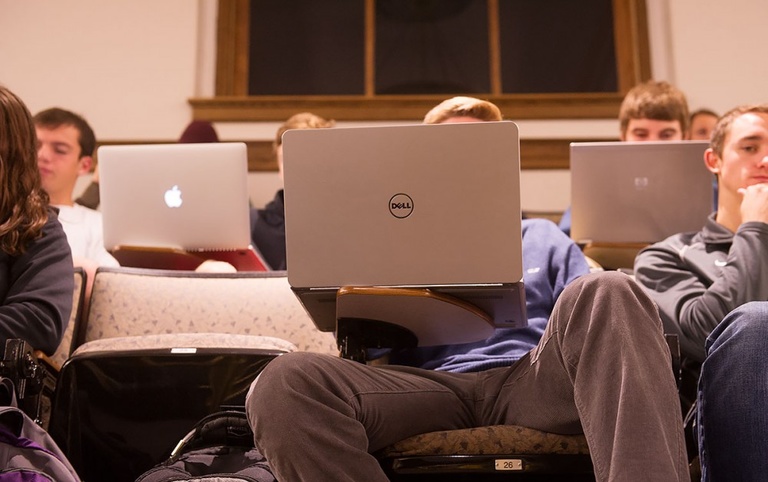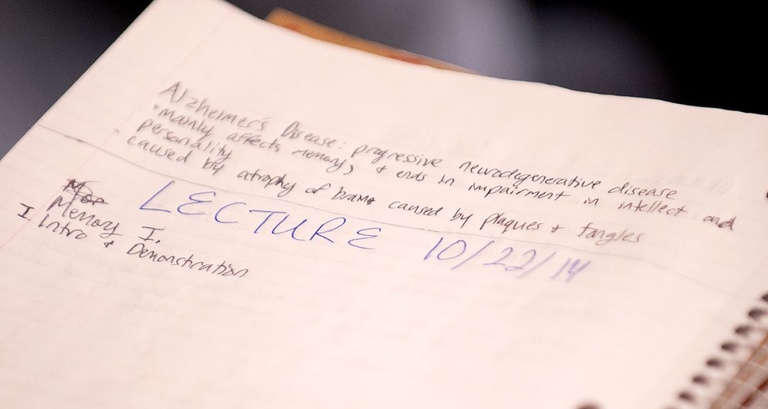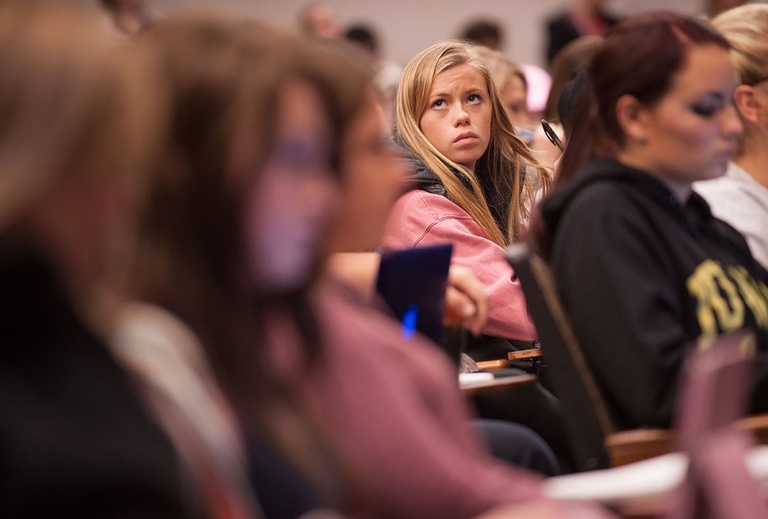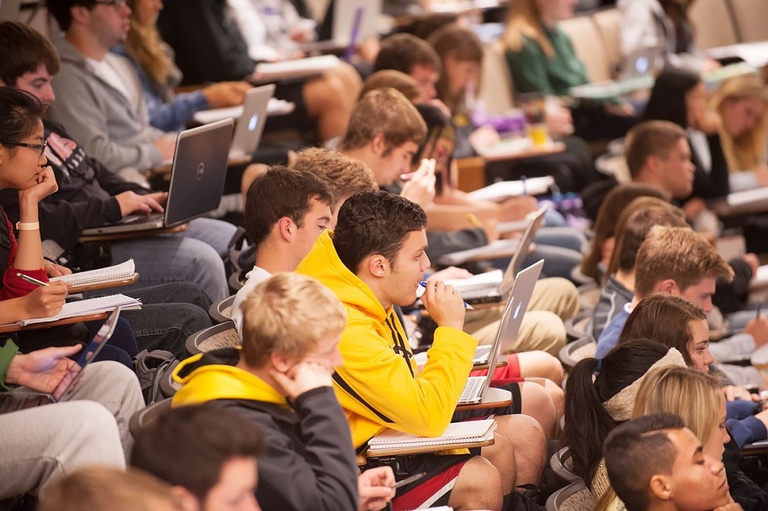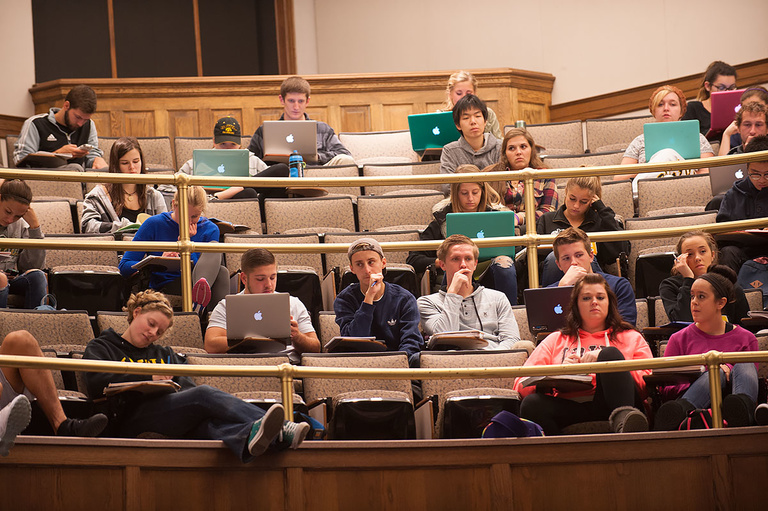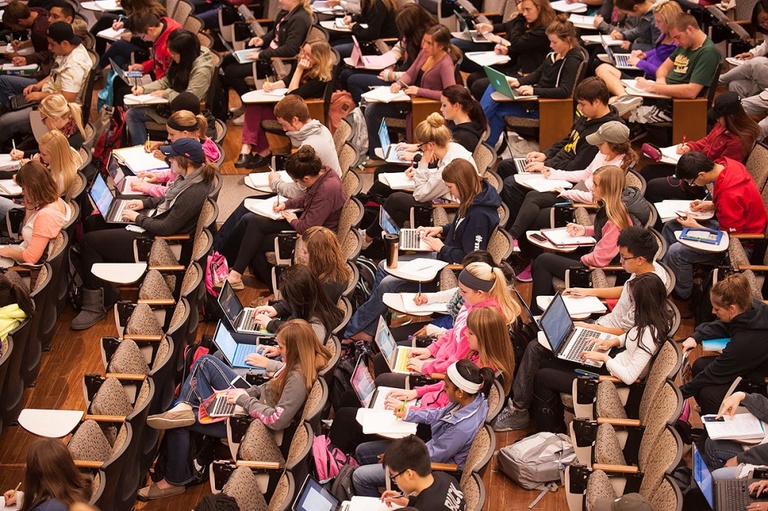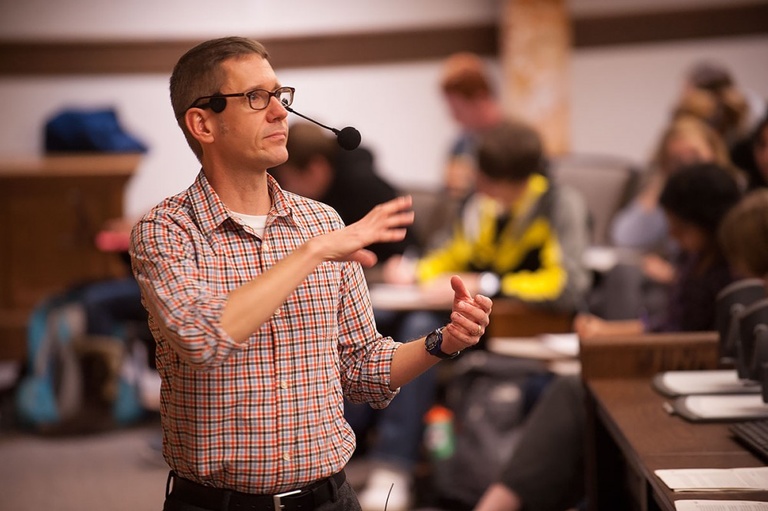Classroom Pass is an Iowa Now project that sent teams of writers, photographers, and videographers to 15 classes on Wednesday, Oct. 22, to showcase the breadth and strength of the University of Iowa's academic offerings for undergraduates as well as its dynamic faculty and state-of-the-art facilities. See what other classes they visited.
Class: Elementary Psychology
Instructor: Shaun Vecera, professor of psychology
“There’ll be a test in two weeks,” Shaun Vecera reminds several hundred students assembled before him in Macbride Auditorium. “Wouldn’t it be great if you had perfect recall and didn’t have to study (or even write down) lecture notes to get an A on the test?”
Many students smile or nod.
Well, Vecera points out, it turns out to not be a good thing. He presents a couple of historic cases of exceptional memory. One man, studied by psychologist Alexander Luria and dubbed “Patient S,” was given 70 random digits, and he was able to flawlessly recall them forward and backward.
Learn more about the Department of Psychology, the seventh oldest psychology department in the country.
The problem? Patient S also could remember—actually, he couldn’t forget—all sorts of unimportant information. “He got bogged down with minutia,” Vecera explains.
Vecera, who regularly teaches this popular course (and, in fact, delivers a second lecture in the afternoon), reviews the 1968 Atkinson-Shiffrin model of memory. Memory, it suggests, is not a single process; rather, it involves different types of memory, including sensory memory, short-term memory, and long-term memory.
The lesson concludes with a demonstration of the failure of visual, or iconic, memory. Vecera plays a video on a large screen behind him. It quickly alternates between two nearly identical images, and he asks students to raise their hands when they detect the difference. Every few seconds, a dozen or so arms go up. When Vecera eventually uses an arrow to draw attention to a certain area of the image, the remaining arms rise. The capacity of iconic memory is large, he says, but the duration is short.
The other forms of memory, Vecera promises, will be discussed in detail at future lectures.
